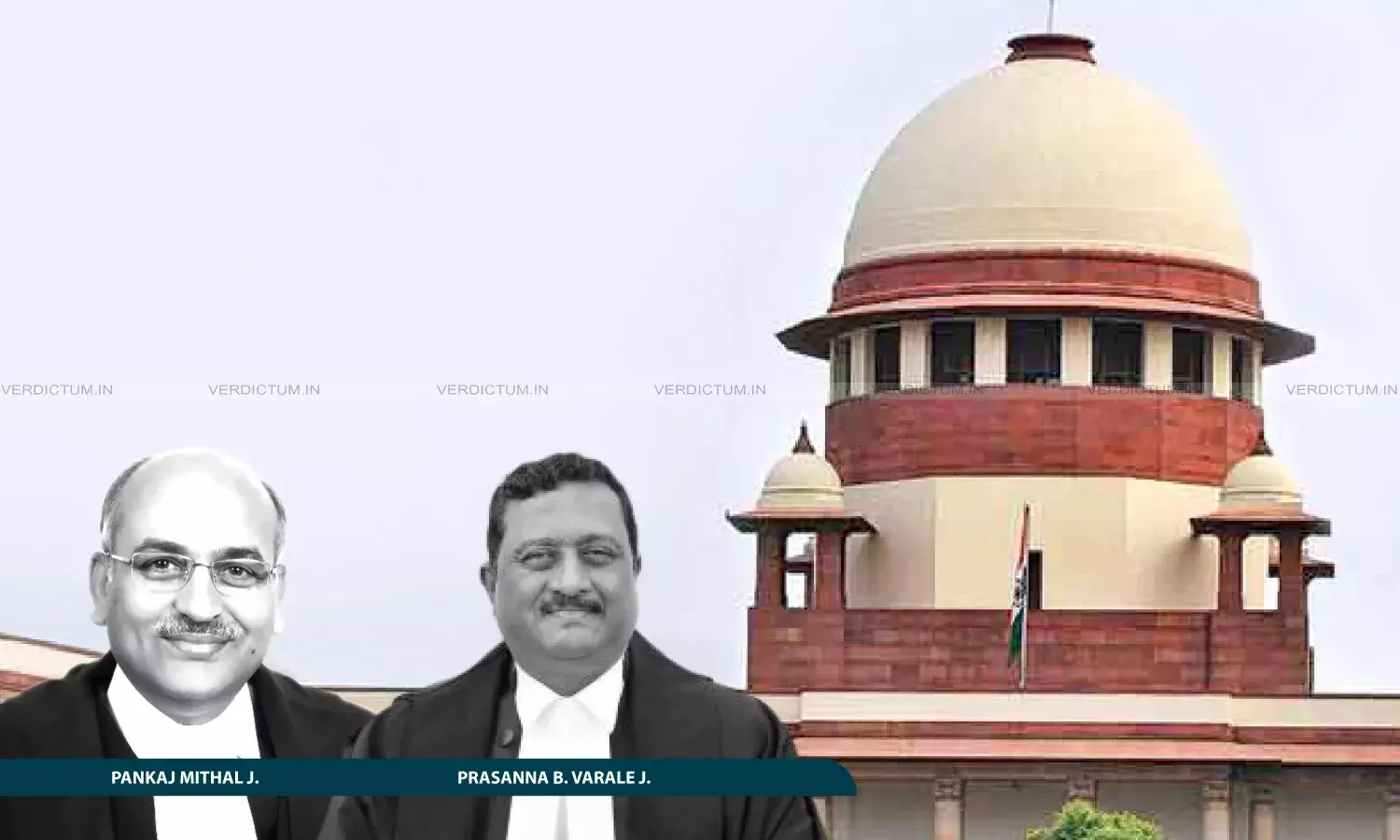Forgive Wrongdoer But Don’t Forget The Wrongdoing: Supreme Court While Upholding Dismissal Of POSH Complaint Against Kolkata NUJS VC
The Court dismissed the complaint against the Vice Chancellor as barred by limitation, but directed that judgment be made a part of his resume.

Justice Pankaj Mithal, Justice Prasanna B. Varale, Supreme Court
The Supreme Court dismissed a complaint of sexual harassment filed by a faculty member against the Vice-Chancellor of NUJS Kolkata as barred by limitation, but directed that its judgment should be reflected in his professional record.
The Apex Court held that the wrong that had been committed against the appellant may not be investigated on technical grounds, but it must not be forgotten, and should continue to haunt the wrongdoer forever.
A Bench comprising Justice Pankaj Mithal and Justice Prasanna B. Varale, while deciding the appeal, observed that “It is advisable to forgive the wrongdoer, but not to forget the wrongdoing. The wrong which has been committed against the appellant may not be investigated on technical grounds, but it must not be forgotten.”
Advocate Meenakshi Arora represented the appellant, while Advocate Madhvi Dhawan represented the respondent.
Background
The case arose from allegations of sexual harassment made by the appellant, a faculty member of the West Bengal National University of Juridical Sciences (NUJS), against the respondent, the Vice Chancellor. She alleged that beginning in 2019 and continuing until April 2023, she was repeatedly subjected to unwelcome advances, sexually motivated proposals, and threats to her career prospects.
She further claimed that after refusing his advances, her promotion was delayed and, later, in April 2023, she was again threatened with adverse consequences.
In August 2023, she was removed from the position of Director, Centre of Financial, Regulatory and Governance Studies, pursuant to an external complaint by the National Foundation of Corporate Governance and the decision of the Executive Council.
The appellant lodged her complaint under the POSH Act before the Local Complaints Committee (LCC) in December 2023. The LCC dismissed it as barred by limitation. A writ petition before a Single Judge of the High Court was allowed, holding that the subsequent hostile actions constituted continuing harassment.
However, the Division Bench reversed the decision, holding that the administrative actions taken against the appellant after April 2023 were collective decisions of the Executive Council, consisting of eminent academicians, jurists and even Supreme Court Judges and were not just personal actions of the Vice-Chancellor.
Aggrieved, the appellant approached the Supreme Court.
Court’s Observations
The Supreme Court examined the provisions of the POSH Act, reiterating that the limitation period for filing a complaint is three months from the date of the incident, extendable up to six months.
The Bench upheld the High Court’s reasoning that the last incident of sexual harassment alleged was in April 2023, and the subsequent removal from directorship in August 2023 did not amount to sexual harassment but was a collective administrative decision.
Furthermore, holding that the complaint filed in December 2023 was beyond the maximum limitation period, the Court affirmed the Division Bench’s decision that the LCC was correct in rejecting the complaint.
However, emphasising that the wrongdoing must not be forgotten, the Apex Court directed that “the incidents of alleged sexual harassment on part of respondent no.1 may be forgiven but allowed to haunt the wrongdoer forever”, therefore directing that the judgment be made part of the resume of the Vice Chancellor, compliance of which is to be strictly ensured by him personally.
Conclusion
The appeal was dismissed as barred by limitation. However, the Supreme Court directed that the present judgment be permanently recorded in the respondent’s resume.
Cause Title: Vaneeta Patnaik Vs Nirmal Kanti Chakrabarti & Ors (Neutral Citation: 2025 INSC 1106)
Appearances
Appellant: Advocate Meenakshi Arora
Respondents: Advocate Madhvi Dhawan


